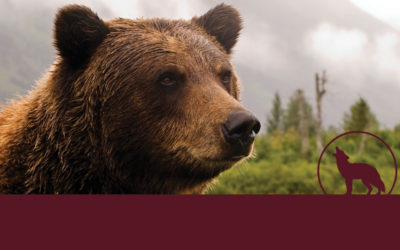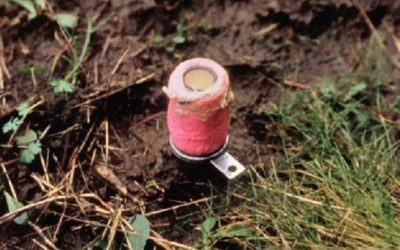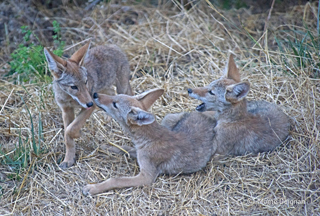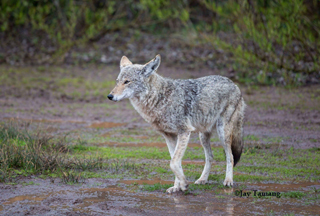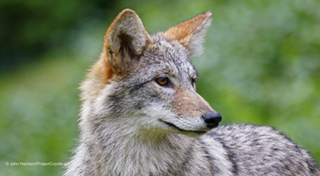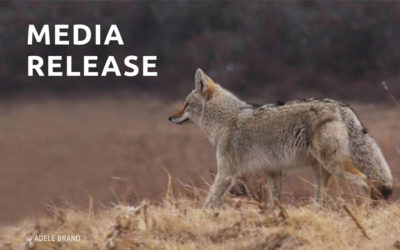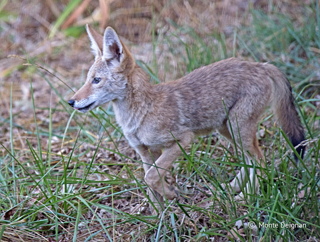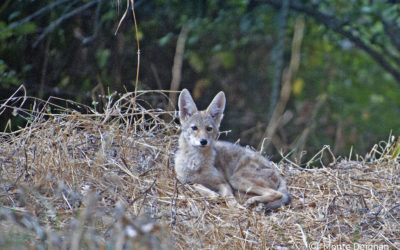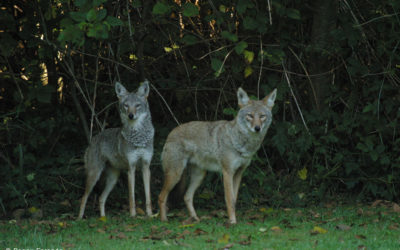Lawsuit Targets Trump Wildlife-killing Program in 10 California Counties
SAN FRANCISCO, Calif.— The Center for Biological Diversity, Animal Legal Defense Fund and Project Coyote today sued the U.S. Department of Agriculture’s Wildlife Services program over its outdated wildlife-killing plan for 10 counties in Northern California.
The Forest Service Puts Ranchers Ahead of Grizzlies (and the Public Interest)
The recent killing of more grizzly bears by the Wyoming Game and Fish, a listed endangered species, to protect ranchers in the Upper Green River Allotment on the Bridger Teton National Forest is another shameful example of the mixed-up priorities and mismanagement of our public lands.
Ultra-lethal ‘Cyanide Bombs’ Used To Kill Public Wildlife Banned For Now In Wyoming
Most Americans are probably unfamiliar with the federal government’s taxpayer-subsidized killing campaign carried out every year against public wildlife on public lands, most of them located in the West. Most are probably unaware that their hard-earned money, paid in taxes to Uncle Sam, helps to operate a federal agency known as Wildlife Services, a branch of the US Department of Agriculture’s Animal and Plant Health Inspection Service.
Science vs Policy- Future of the Mexican Wolf with David Parsons
The saga of the Mexican Grey Wolf is a story of how politics interferes in the efforts of independent scientists to recover an endangered species. With my guest David Parsons, who formerly led the USFWS efforts to reintroduce the Mexican Grey Wolf to the American Southwest from 1990-99, we learn how difficult it is to reintroduce a species and save it from extinction when powerful vested interests who control legislators hijack the policy process down to even the scientific modeling results for how many wolves are needed to recover the species.
Local expert working to raise coyote awareness in Arlington
If you see a coyote in Arlington, what should you do? This question and many similar inquiries led to a special discussion inside Arlington Town Hall on July 31, as residents spoke with local experts on how to handle living with a coyote population in Arlington.
Report Shows Environmental Impacts of Predator Control in Mendocino
Mendocino County’s Predator Control program is under scrutiny, after a group of Wildlife Advocacy Groups sued them for failing to study the ecological impacts of their contract with Wildlife Services, a federal agency that kills predators and other wildlife ostensibly to protect livestock. The Plaintiffs, led by the northern California’s Project Coyote, argue that the current practice of killing these animals has devastating environmental effects, and that nonlethal methods of predator control are more effective and humane.
Editorial: Ban of coyote killing contests a smart idea
We’re glad the agency responsible for the protection of the state’s wildlife is calling for a ban on killing contests for coyotes and other furbearers such as bobcats, foxes and racoons — and we hope that Massachusetts soon implements such prohibitions.
Trump Administration Proposal to Remove Federal Protection for Gray Wolves Is Scientifically and Legally Flawed
Washington, D.C. – Today is the final day to submit comments on the Trump Administration’s proposal to strip Endangered Species Act (ESA) protection for all gray wolves living in the lower 48 United States, except for the separately listed Mexican gray wolf.
Celebrating America’s Song Dog
Perhaps no other wild animal has endured the wrath of humans while evoking such genuine heartfelt admiration than the coyote. Some livestock owners curse her existence, many Native Americans consider her the smartest animal on Earth, and others experience joy in seeing or hearing this vocal Song Dog.
AzG&F commission restricts killing contests
BISBEE — Though not a total win for wildlife conservation leaders, they are happy with the decision of the Arizona Game and Fish (AzG&F) Commission to ban fees and awards for wildlife killing contests.
Arizona Game & Fish Commission Adopts Rule to Ban Wildlife Killing Contests
Phoenix, AZ – Today the Arizona Game and Fish Commission (AZGF) voted unanimously (4 to 0) to ban wildlife killing contests (WKCs) for predatory and furbearing species in Arizona. For months a coalition comprised of concerned citizens and wildlife conservation organizations has worked tirelessly to ban WKCs statewide.
Killing Coyotes Is Not As Effective As Once Thought, Researchers Say
In a rugged canyon in southern Wyoming, a helicopter drops nets over a pair of coyotes. They’re bound, blindfolded and flown to a landing station. There, University of Wyoming researchers place them on a mat. The animals stay calm and still while technicians figure out their weight, age, sex and other measurements. Graduate student Katey Huggler fits the coyotes with tracking collars.
Meet the coyote, one of nature’s great tricksters
The conversations were as old as the South Texas brush country in which they occurred, although they could have happened in just about any wild or even marginally feral corner of the state. One side opened with a long, moaning howl. The immediate answer — a sharp series of yips — came from what sounded close to the original howl. Maybe even the same spot. Then it quickly became a free-for-all. Warbling, barking, shrieks, screeches, yapping, howling, yips, whines and what sounded for all the world like a high-pitched laugh.
The Arizona Game And Fish Commission Debates Banning ‘Coyote Killing Contests’
Some people call it barbaric. Others say it’s their right. Coyote killing contests, as they’re called, are a hot topic of debate in Arizona. The contests reward hunters who can kill the most, or the largest or, sometimes, the smallest animals in a set amount of time. Sometimes it’s coyotes, other times, bobcats, foxes or mountain lions.
Killing wolves was supposed to solve a problem but created one that will last forever
On a cold, miserable morning in May, Stan Gehrt trod across an open field as wind and rain blew in his face. He was leading a team of wildlife biologists on a mission to find an animal with a gift for not being seen. The team didn’t have to travel far from its headquarters for the search. A female coyote had made a den within sight of Chicago’s skyline. They were only “about five kilometers” from America’s busiest airport, O’Hare International, Gehrt said as he advanced toward the den, wind howling through his cellphone microphone during an interview.
Rule being considered to eliminate animal killing contests in Arizona
The Arizona Game and Fish Commission will consider a rule to ban animal killing contests in June. A 30-day public comment period ended May 12 on a move to end contests where cash and prizes are awarded to those who kill the most or largest or smallest animal. At least 40 such contests have been held in the state over the past two years. We’ll hear more from Joe Trudeau, Southwest advocate at the Center for Biological Diversity and Matt Francis, who is with Project Coyote.
Coyote killing contests are wasteful, wanton behavior counter to Oregon’s values
Oregonians of all stripes, including Republicans and Democrats, hunters and non-hunters alike, hold our wildlife in high regard. Our state’s proud hunting tradition is influenced by humane values that are uniquely Oregonian, and are reflected in our public policy choices.
Coyote-killing contests face growing outrage, state bans
In mid-December, a hunting contest was held in central Arizona for the 11th year in a row. The team that killed the most coyotes won. The event’s name emphasized the goal: It was called the “Santa Slay Coyote Tournament.”


